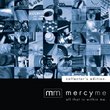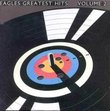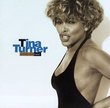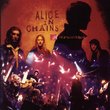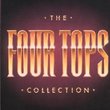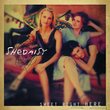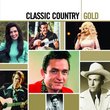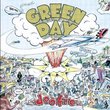| All Artists: Waylon Jennings Title: Phase One: The Early Years 1958-1964 Members Wishing: 0 Total Copies: 0 Label: Hip-O Records Original Release Date: 1/1/1958 Re-Release Date: 3/5/2002 Genres: Country, Pop Styles: Outlaw Country, Classic Country Number of Discs: 1 SwapaCD Credits: 1 UPC: 731458409625 |
Search - Waylon Jennings :: Phase One: The Early Years 1958-1964
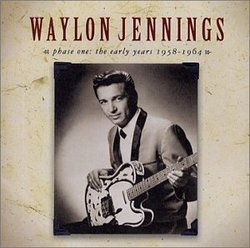 | Waylon Jennings Phase One: The Early Years 1958-1964 Genres: Country, Pop
Waylon Jennings came to Nashville in 1965, and through shrewd marketing from RCA and his own rogue artistry, he became both a legend and a critical force in modern country music. Behind him lay a fascinating past as a bass... more » |
Larger Image |
CD DetailsSynopsis
Amazon.com Waylon Jennings came to Nashville in 1965, and through shrewd marketing from RCA and his own rogue artistry, he became both a legend and a critical force in modern country music. Behind him lay a fascinating past as a bassist for the late Buddy Holly and a musical reputation as a rising young Turk in Phoenix. These recordings, a grab bag of sides from four different labels, including A&M, where Herb Alpert played trumpet behind him, showcase the burgeoning "outlaw" as he searched for his sound. It's no surprise that the best cut is the self-penned "Just to Satisfy You," which would take Jennings to Nashville; the material, all covers otherwise, leans hard on Roy Orbison (a mistake) and folk ballads à la Ian Tyson and Bob Dylan. Jennings's baritone hadn't yet matured into its full richness (he sounds eerily like Junior Brown on the Holly-produced "When Sin Stops"), but he's just on the verge of honing his famous thumping beat on Dylan's "Don't Think Twice, It's Alright." A little more than a year later, Jennings would begin to synthesize the disparate elements in his original songs and add the danger and attitude that helped make him a star. Consider this the aural map of that circuitous route. --Alanna Nash Similar CDs
Similarly Requested CDs
|
CD Reviews+1/2 Waylon's early roots Joe Sixpack -- Slipcue.com | ...in Middle America | 03/19/2003 (3 out of 5 stars) "An interesting, if sometimes underwhelming, set of Waylon Jennings rarities, recorded before he signed to RCA Records in 1965. This includes an early rock'n'roll single he recorded in 1958, under the guidance of fellow Texan Buddy Holly, whose last band Waylon was in for a short time, as well as several indie releases and singles made for A&M, just before RCA got wind of him. A lot of cover tunes, and some early stabs at the folk-country sound he would mine throughout the rest of the decade. Some of the material is flat, some of it a little strained, but Waylon fans will still want to check it out, just to hear where it all began." An incredible set of early Waylon recordings. Casey Heilman | 01/20/2005 (5 out of 5 stars) "I have always loved the post-Honky Tonk Heroes sound of Waylon. He had an edge in his voice that just screamed, "I know what I'm doin' and don't need your approval". These early recordings are quite a bit different from the Outlaw sound of the '70's. Waylon was still trying to prove himself a talented musician. His vocal range was never more perfectly recorded. At times he shows up Roy Orbison with his range. And that ain't easy. Mostly, these songs are happy. You can hear the optimism and joy in his first recordings, When Sin Stops and Jole Blon. And you can hear the sadness regarding the loss of people he looked up to and loved in the song "The Stage". After the Live Extended Edition, this may be my favorite Waylon CD." Great collection of early Waylon! Casey Newbold - Kerr | Melbourne, Australia. | 10/10/2002 (5 out of 5 stars) "This album beats the...bootlegs hands down. Waylon's first album has been released on bootlegs so many times it's getting ridiculous -- and often the CDs are actually made from the faux-stereo '60s LP reissue. Needless to say, the sound quality of those releases is terrible.Anyone who has heard such CDs will breathe a sigh of relief when they put "Phase One" on. The sound quality is outstanding, and I AM picky about sound. In fact, I'm a sound engineer. For such old tracks, these sound amazing. Very clear, crisp, and certainly far removed from the bootleg quality we're all used to.How about the material?Well, if you're expecting rockin' Outlaw anthems, this isn't the CD for you. What it IS, however, is a collection of Waylon's earliest recordings. The material goes from country to folk to rock to pop, but it's all done in that unique Waylon style which, while still young, was already pretty well formed. For instance, "Sally Was A Good Old Girl" has some guitar work that wouldn't be out of place on an Outlaw-era recording. Waylon's vocals are, of course, fantastic. We hear his range on some of these tracks -- he could sing as high as Roy Orbison and as low as Johnny Cash. Very impressive. Listening to this album, you can hear Waylon's style coming together, and you can get a sense of just why Chet Atkins signed him to RCA Records. He had a great sound and style... even all those years ago!Among the standout tracks are "Four Strong Winds," "Sally Was A Good Old Girl," "Don't Think Twice (It's All Right)," the early version of "Just To Satisfy You," and "House Of The Rising Sun," which is a little different than the 1976 version. ("Waylon Live.")Buy this album to hear Waylon's earliest recordings. They're great. Don't buy it to hear Waylon changing country music's rules or cranking out "Are You Sure Hank Done It This Way." It's early Waylon... and it's definitely good Waylon. (Although isn't it all?)Also, the packaging is very nice. When I opened this CD, I was quite impressed with the packaging, and I almost wished MCA/Hip-O owned Waylon's RCA catalog, because I'd love to see them reissue some more classic material that hasn't yet seen a quality reissue -- or a reissue at all ("I've Always Been Crazy," etc).All in all, Waylon fans will love this one. More casual fans would probably also enjoy hearing this because it shows what Wayon was like back in the JD's days. That place would have been a-rockin'!"
|

 Track Listings (20) - Disc #1
Track Listings (20) - Disc #1